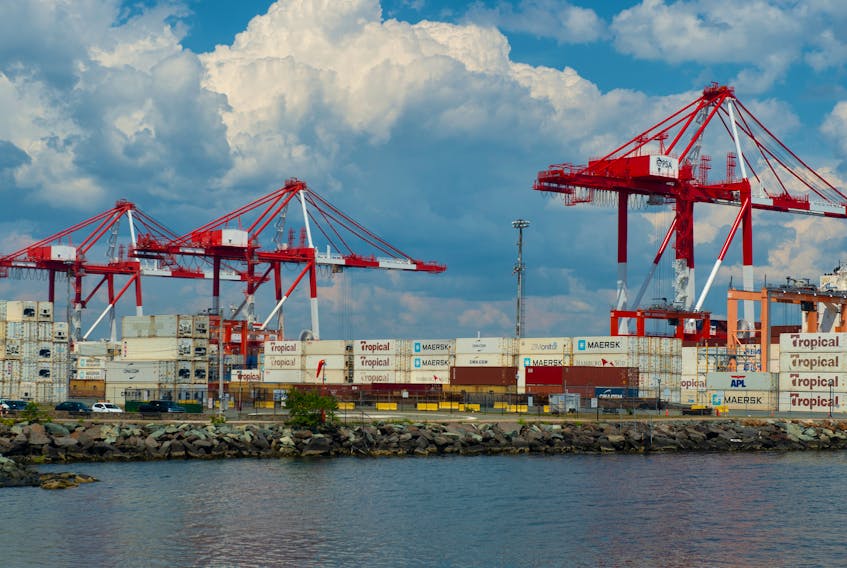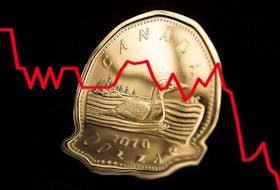The worst effects of COVID-19 on the Atlantic region’s economy may already be behind us, according to an Atlantic Provinces Economic Council report, but that doesn’t mean we’re on the verge of full recovery.
Atlantic exports were down 50 per cent in May from 12 months earlier, according to the regional economic think-tank. Many suppliers have been affected by lower prices and demand, with some switching to producing personal protective equipment during the pandemic.
Fred Bergman, senior policy analyst at APEC, says data seems to indicate that the worst of the effects of the pandemic are over. By August, Atlantic exports had recovered half their losses.
Bergman, who authored COVID-19: Key Issues for the Atlantic Economy, says there has been a significant impact on global value chains because of the pandemic, and some industry sectors have been hit harder than others.
“We know that tourism will take longer to recover,” he said in an interview Thursday.
“We’re seeing significant impacts on air travel as well . . . with less people travelling.”
In the report, Bergman points out that WestJet and Air Canada have reduced flights within the region and that Porter Airlines has put all flights on hold until Dec. 15.
“If you were to look at hotel occupancy data, you’d probably see fairly low hotel occupancy here in Nova Scotia,” he said.
APEC is also projecting a drop in major project spending this year, which Bergman says will be revealed in greater detail next week when the think-tank reveals its Provincial and Regional Economic Outlook.
While there is a lull in the action, so to speak, he is suggesting now is a good time for governments and companies to invest in e-commerce and digital capacity to help Atlantic firms boost sales, lower costs and improve risk management.
Exports are an important part of the regional economy and, Bergman says, businesses in the Atlantic region must use this period of crisis to review existing supply chains and determine whether they need to find alternative suppliers. That includes looking globally and domestically for replacements.
Atlantic Canada’s international exports were valued at $36 billion in 2019, which is about 29 per cent of the region’s gross domestic product, supporting more than 118,000 jobs, he says.
The United States made up 70 per cent of the region’s merchandise exports last year, down from 82 per cent in 2000. By further expansion into global value chains outside the United States, Atlantic exporters are diversifying their geographic markets to reduce risk, he says.
“When looking at their export opportunities, we’re still kind of pushing trade diversification,” says Bergman.
“That way, if one country goes down because of COVID-19, then at least you have another country you can export to.”
But, he says, APEC also recognizes that, during the pandemic, creating greater export diversity can sometimes be hard to accomplish. Diversification takes time, energy and resources, and Bergman says not every business can afford to do it, especially now.
“So, they’ve got to look at it on a situation-by-situation basis whether or not it makes sense to export to a particular country,” he says, and not just on an economic basis but culturally, logistically and politically.
Bergman applauds what some government agencies have done to address COVID-19’s effects on Canadian business.
“The trade commissioner service itself may have to pivot to not only serve international markets but to also look at trade locally,” he says.
Bergman points to the efforts by government agencies with more specific business agendas, Business Development Bank and Export Development Canada, which have pivoted to help companies survive the domestic economic environment.









